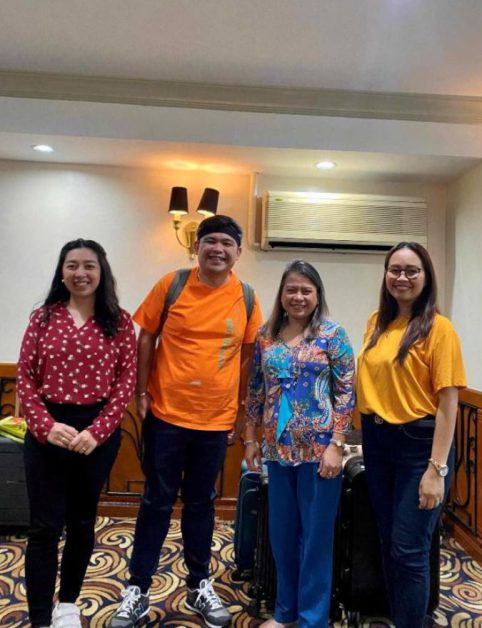Two educators from Saint Louis University Basic Education School Laboratory Elementary Department had the honor of participating in the Teacher-Trainer Orientation Program for the 2024 In-Service Training for K–6 Teachers, which took place at the Tiara Oriental Hotel in Makati City from 22-24 March 2024.
With the Department of Education’s new MATATAG curriculum about to go into effect the next academic year, the Private Education Assistance Committee (PEAC) has designed a training program specifically for K–6 teachers working in private schools. PEAC invited 56 teacher-trainers from 28 institutions nationwide to participate in the K–6 Training of Trainers with the theme, “Coaching Private Elementary School Teachers in the Implementation of the MATATAG Curriculum,” in response to this call and in collaboration with the private schools in the Philippines. Mrs. Ruth Ann Melis and Mrs. Leah May Linomta, both teachers in the elementary department of SLU BEDs LED, took part in the aforementioned three-day training.
The training took place in three distinct sessions. Dr. Gina L. Montalan, the K–6 INSET Consultant and Academic Vice President of the Ateneo de Davao University, presented the lectures on Understanding the MATATAG K–10 Curriculum as an Enhancement of the 2016 Curriculum and Unpacking of Learning Competencies (LCs). The principal of the St. Benedict Childhood Education Center, Mr. Raul Fernando L. Ballesteros, also provided an explanation and presentation of several aspects of the instructional plan, specifically the learning goals. From their sharing, the participants gained insights into how the curriculum can foster holistic development and critical thinking skills among students, addressing multiple dimensions of sustainable development. Workshops were held throughout the remaining training days to prepare lesson plans and curriculum for Kinder, Grade 1, and Grade 4 students in a variety of academic areas.
The training program integrates the objectives of the MATATAG curriculum, the principles of sustainable development, specifically Sustainable Development Goals (SDGs) 4, 5, and 17, which pertain to quality education, gender equality, partnerships to achieve the goal, and the advocacy of the Congregatio Immaculati Cordis Mariae (CICM) specifically on promoting social justice. This creates a bridge between educational initiatives and broader societal aspirations. As teachers continue to apply these lessons in the classroom, they are significantly contributing to the creation of a future in which education acts as a catalyst for good change, in keeping with the goal of creating a more sustainable and fairer world.








